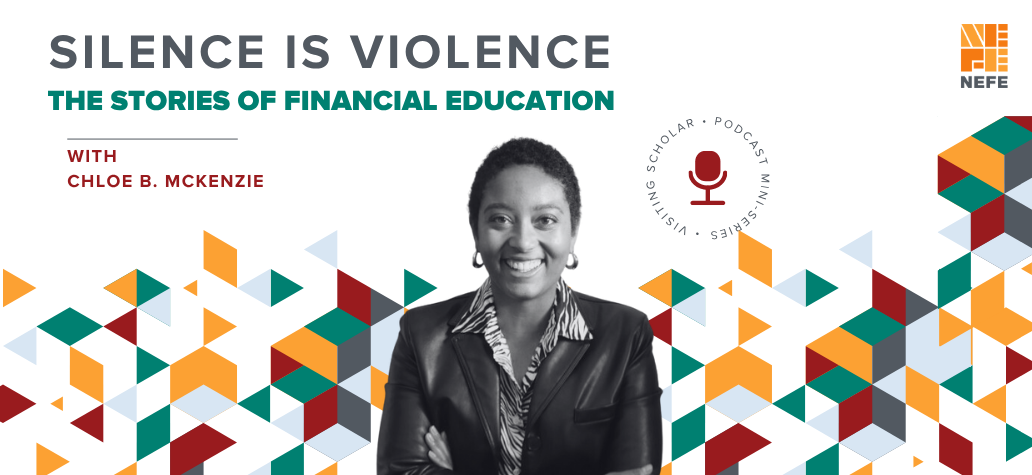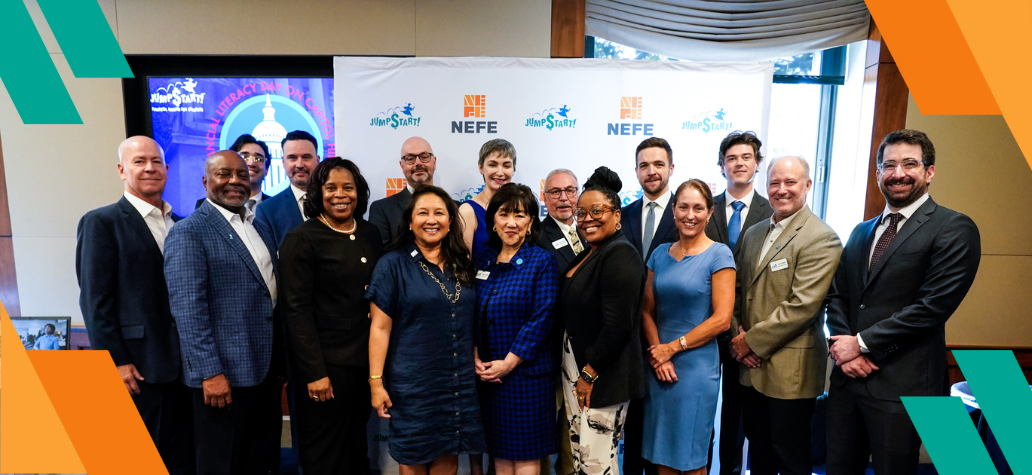 Throughout April we commemorate Financial Literacy Month, a time to recognize the work of our field, celebrate our colleagues and partners, and highlight research and educational resources that serve a benefit to all Americans. But this year is not business as usual. Our community now must question our purpose and the role we will play in the future.
Throughout April we commemorate Financial Literacy Month, a time to recognize the work of our field, celebrate our colleagues and partners, and highlight research and educational resources that serve a benefit to all Americans. But this year is not business as usual. Our community now must question our purpose and the role we will play in the future.
The COVID-19 outbreak is an unprecedented event and conditions are evolving quickly and changing daily. Yet we have seen a pivot within our community of financial educators and advocates to keep services available to teachers and learners, as well as developing plans to respond to the millions who will need financial education as they work toward recovery.
And the need will be great.
A new survey from the National Endowment for Financial Education (NEFE) finds that nearly nine in 10 (88 percent) Americans say the COVID-19 crisis is causing stress on their personal finances. More than half (54 percent) say they’re worried about not having enough saved, while almost half (48 percent) are worried about their ability to pay bills. With recent news from the Department of Labor that one in 10 Americans is now seeking unemployment benefits, it’s clear that worry about job security could be escalating. The NEFE survey finds that 28 percent say they’re stressed over their job security. Three-quarters of Americans are taking steps to adjust their finances due to the outbreak. Two in five note they have cut expenses—26 percent are putting off major financial decisions and 22 percent have increased contributions toward savings. Additionally, the outlook for personal finances a year from now is proportionately low. Two in five say they’re “very/somewhat worried” about what their financial situation will be 12 months from now, compared to one in three who are “very/somewhat optimistic.”
This crisis has revealed many fault lines in our country. Far too many people are facing real hardships: health care professionals are on the frontlines going into combat daily, teachers and parents are navigating the transition to virtual learning environments, and workers whose financial and personal survival is couched in the gig and hourly-wage economy are struggling. Reflecting on the pandemic, questions arise as to what role financial education plays in preparing people to face economic challenges, how it increases confidence to manage money during a crisis, and how it can lead to recovery as quickly as possible.
Financial education has many proven benefits, but it alone is not enough to foresee economic challenges nor remedy a crisis. Alternately, leveraging the coronavirus outbreak to demonstrate the ineffectiveness of financial education and blaming the individual for not having emergency savings or financial resources to get through this is irresponsible. Everyday people should not be made the scapegoat when we are living in an ecosystem that is systematically selective. And certainly, Financial Literacy Month 2020 is not the time to focus on articles with “tips and tricks,” nor advertise a promotional ideology. Information is helpful as many may need to make quick decisions, but alone will do little to slow a free-fall or propel finances toward normalcy.
Financial education will, however, play a pivotal role in the economic recovery of our country. In 2008, with the onset of the Great Recession, the financial education field adjusted and redeployed change agents to respond to that financial crisis. And today we’re already witnessing many quality organizations and practitioners—financial literacy programs, researchers, associations, financial counselors and planners—working with families to provide pro bono assistance. We’ve also seen financial educators and advocates developing strategies to lend a calm, guiding hand to those who will need help in the months and years to come.
These are examples of what we most need at this time—leadership and action. As a community of helpers, builders and influencers we do not have the luxury to be paralyzed by the anxiety that we don’t know the next best steps. We must have the vulnerability to carry on with an honest spirit that we might not know what we can do, but we are willing to continue trying. We are more inextricably linked than ever before, and I see more clearly how we are not only responsible for ourselves, but others. The coronavirus has exposed the need for connection between us all, and the need to protect our physical health as much as our financial well-being.
This year is the 20th anniversary of Financial Literacy Month, of which NEFE is a founding member. It will be different—busier, more focused, more deliberate. But what I do know about our community is that we will collectively champion each other’s efforts and coalesce around one mission to help all Americans. While these are anxious times, we’ve been here before, and history shows that we will prevail.
Billy J. Hensley, Ph.D., is president and CEO of the National Endowment for Financial Education (NEFE), a nonprofit foundation that champions effective financial education. NEFE is the independent, centralizing voice providing leadership, research and collaboration to advance financial well-being.



